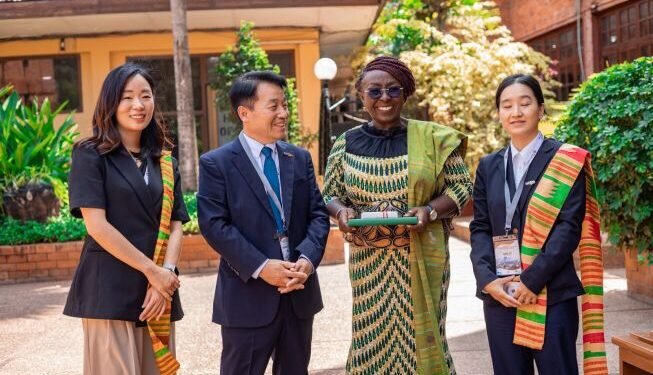Professor William Baah-Boateng, an Economist, has urged policymakers to move away from job creation to employment generation.
Speaking during an interview, the Professor, used job creation as a term for temporary employment over a very short period, pointing out that if policymakers continue to use ‘gigs’ to address the unemployment situation in the country, they would inadvertently create even more unemployment.
“Yes, you’ve created that amount of job, that is fine. But if you’ve created that amount of job and it’s not sustainable – it takes just a week for that job to be done, hence, the person comes back to ask for more.
“And that is why your unemployment rate will continue to rise because you’ve created a job for a person and that job lasted for only one month or only a week. So after that, the person joins the unemployed.”
Prof. William Baah-Boateng
The Economist disclosed that to get a clearer picture of the employment situation in the country, policymakers must pay critical attention to those exiting the job market.
“When you want to talk about employment generation or you want to equate it as job creation in terms of numbers you need to look at the exit – those who are exiting, to be able to get the net. So, you’re here, business desk, let’s say you have five people employed and then three leaves.
“So, you’re left with two and then your employers bring two so you’re four and you say ‘oh we have created jobs for two people’ that it cannot be because three people have left and replaced them by two. So, if anything at all there is negative employment creation.”
Prof. William Baah-Boateng
According to Prof. Baah-Boateng, achieving sustainable employment would only be possible if Policy makers would create jobs that can keep a person employed for at least half a year.
“So, policymakers should move away from what they call job creation to employment generation. And that employment generation, we are talking about employing somebody sustainably, and that kind of employment can last for at least six months.”
Prof. William Baah-Boateng

His comments come on the back of the Ghana Statistical Service’s Quarterly Labour Statistics Report which revealed that about 1.76 million persons were unemployed in the third quarter of 2022.
Within this population, two out of every three unemployed persons were females.
Across the three quarters, about 157,000 persons experienced an unemployment spell that is they were unemployed in all the quarters.
The report further said close to 7.5 million persons remained employed throughout the three quarters out of the about 11 million persons employed in each quarter.
A Call On Government And Managers To Implement Structured Payment Systems
More so, the Economist noted that one way to fix the wage problem in Ghana is to ensure that right payment systems are put in place.
Ghana has been losing funds through multiple salary payouts to ghost names in its payroll. While there have been several attempts to rid the national payroll of these ghost names once and for all, the problem still persists.

According to Prof. Baah-Boateng, a reliable payroll, a safe and transparent payment system has to be created to see to it that government workers receive what is due them, not more or less.
“I mean, you may get somebody who is in the public sector and taking salaries from three different sources, government wouldn’t know unless you, unless somebody says that ‘well, this person is here, the person is here, the same person is here’ so government is paying one person three times. When that happens government will be bleeding. That one is not the role of government to do that.
“It is up to the manager of some of these people to be able to know that we’re actually paying people what they are due. And that is why systems put in place to ensure that the public sector workers are being paid, it means they’re working to be paid.”
Prof. William Baah-Boateng
The Economist finally added that while government is doing its part to help solve the problem; citizens must also do their part and ensure that they are paid based on what we do.























